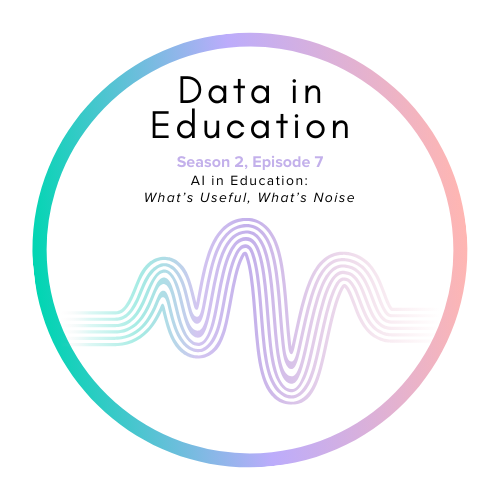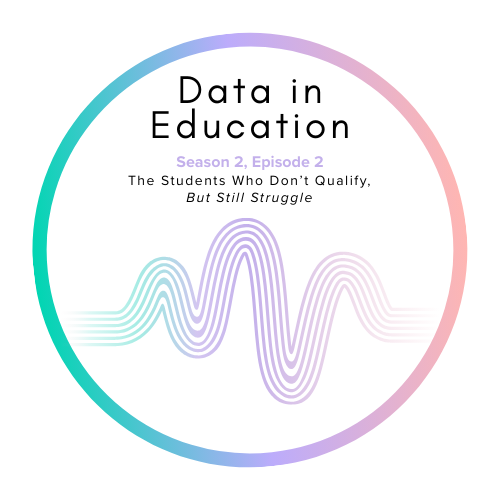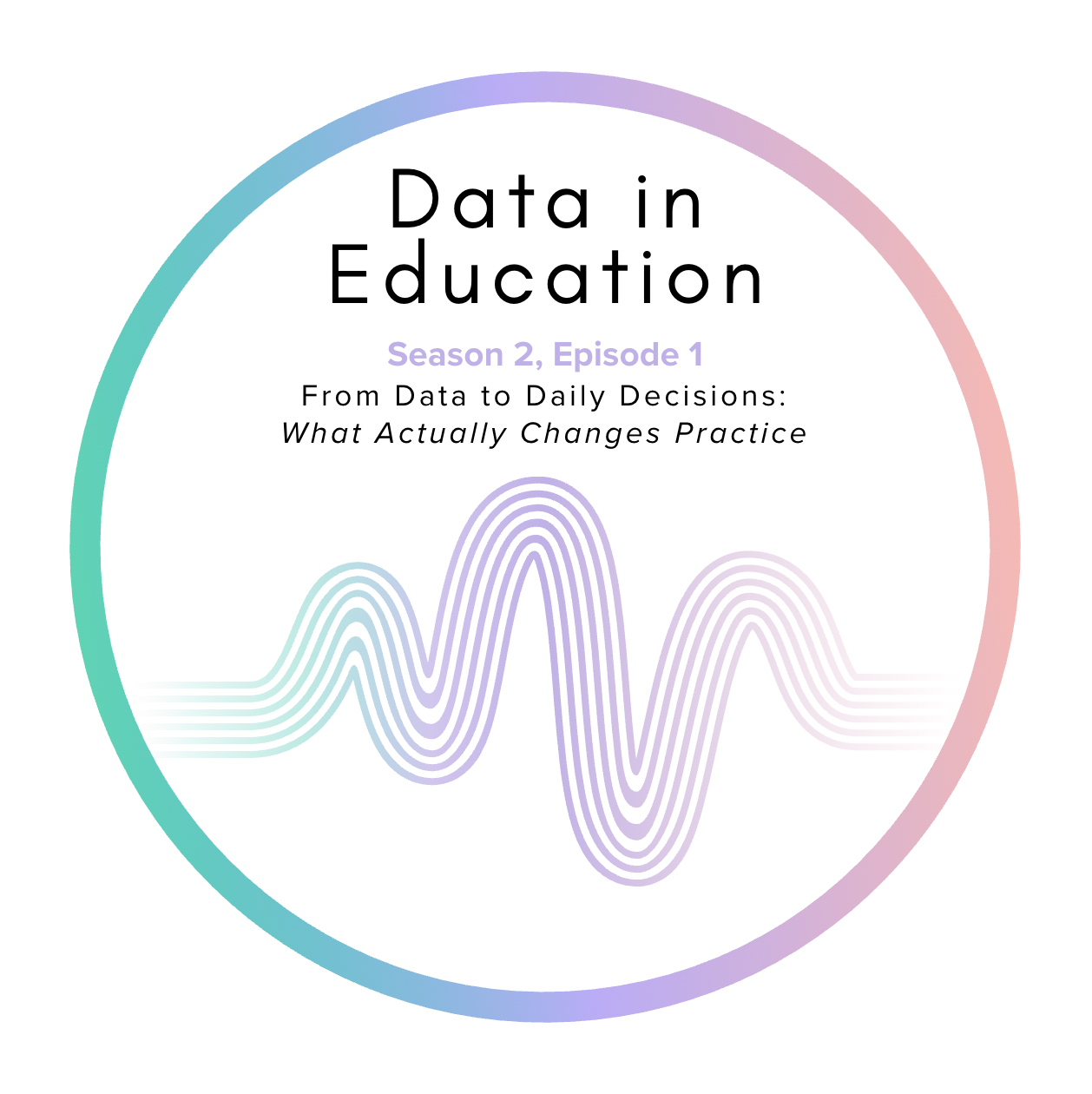
Insights from the trenches
Neurodivergent kids (and the adults around them) deserve to feel good too
We spend so much time trying to support neurodivergent students that we forget to ask a really important question:
Do they actually feel good about themselves in the process?
AI in Education: What’s Useful, What’s Noise
In this episode of Data in Education, Jenelle and Jessica are joined by educators and AI leaders who work closely with both school systems and classroom realities to explore how educators and leaders can use AI thoughtfully without losing what matters most.
Teachers Don’t Need More Platforms. We Need Better Decisions.
Walk into any school today and you will find something educators have no shortage of: platforms, dashboards, tools, and resources.
AI Doesn’t Know Your Students, You Do
AI works best when it supports teacher thinking, not replaces it. Learn how to use AI as a guide for better decisions in education.
Rethinking Neurodiversity: What Schools Get Wrong About Autism
In this episode of Data in Education, Jenelle and Jessica are joined by three leading voices in neurodiversity-affirming practice to explore how misconceptions about autism and neurodivergence shape school systems.
Why Routines Matter More Than Features
Real change doesn’t come from more features. It comes from better data habits. Here’s why routines matter more than tools.
Equity Is in the Details: Data That Drives Access
In this episode of Data in Education, Jenelle and Jessica are joined by school leaders, coaches, and practitioners to explore how data can be used to advance equity rather than unintentionally reinforce gaps.
Making Growth Visible for Students Who Don’t Show It Loudly
Not all student growth is loud. This blog explains how special education teachers can recognize and track quiet progress (like emotional regulation, recovery time, and participation) especially for neurodivergent students impacted by trauma. A reminder that consistency, safety, and small wins matter.
Data Literacy Isn’t a Workshop: Why Habits Matter More Than Training
In this episode of Data in Education, Jenelle and Jessica are joined by researchers, district leaders, and system-level practitioners to explore why data tools often fail when habits are missing, and what it actually takes to build data-literate teams.
Self-Contained Teachers Are Data Experts (Here’s Why)
You notice patterns long before they show up on a spreadsheet.
You understand the why behind behaviors.
You know which routine breaks down the day, which sensory need is escalating, and which skill a student almost has but can’t quite show yet.
Podcast: Behavior is Data, Too: Make it Actionable, Not Punitive
In this episode of Data in Education, Jenelle and Jessica are joined by school leaders and behavior experts to explore how behavior data can drive real skill-building without becoming punitive or dehumanizing.
What Teachers Mean When They Say “I Don’t Have Time for Data”
Why teachers say they don’t have time for data, and what they really need instead. A look at cognitive load, clarity, and how data should support daily instructional decisions.
Podcast: Students Don’t Qualify, But Still Struggle
In this episode of Data in Education, Jenelle and Jessica are joined by MTSS and student-support experts to explore how we catch and support the students who don’t qualify for services but clearly need something more.
Setting Boundaries in 2026: Quality Over Quantity
Setting boundaries in education is not about doing less or lowering expectations. It is about protecting clarity for teachers and students.
At SymplifyEd, we anchor work in one essential question: What skills does this student need to learn next?
Podcast: From Data to Daily Decisions
What actually changes practice after a data meeting? This episode explores how educators can move from reviewing data to making clear, doable daily decisions by reducing overwhelm, focusing on one data point at a time, and designing systems that support real classroom work.
A New Year Reset: Start Small, See Growth
January always comes with pressure. New goals. New initiatives. New expectations. But in classrooms, the most powerful fresh start doesn’t come from doing more. It comes from seeing what matters.
A Season of Gratitude and Renewal
Teaching shapes generations, but caring for ourselves matters too. A year end reflection for educators.
What You Don’t Need to Fix Over Break
A gentle reminder for educators: you do not need to fix anything over break. Rest is not falling behind. It is how clarity and energy return for January.
Why Skills-Based Learning Matters More Than Everything Else
Skills-based learning shifts classrooms from “covering content” to helping students build clear, measurable skills. When students understand the steps they’re learning, growth becomes visible, teaching becomes intentional, and support teams can collaborate with clarity.
A Thank You to the Teachers Who Make Growth Possible
This Thanksgiving, Symplifyed celebrates the everyday work teachers do to support student growth through clarity, simple data, and meaningful connection. Learn how small, intentional steps in the classroom create real momentum for learners.




















